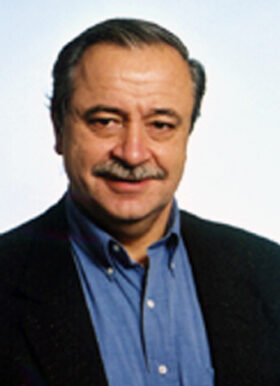
Sándor J. Kovács Jr., PhD, MD, h.c.
Professor of Medicine , Cell Biology and Physiology
Adjunct Professor, Physics, Biomedical and Biological Engineering
Director, Cardiovascular Biophysics Laboratory
- Phone: 314-362-0186
- Fax: 314-362-0186
Related Links
Education
- BS Engineering: Cornell University, Ithaca, NY (1969)
- MS Physics: California Institute of Technology, Pasadena, CA (1972)
- PhD Physics: California Institute of Technology, Pasadena, CA (1977)
- MD: University of Miami, Coral Gables, FL (1979)
- Internship, Internal Medicine: Barnes Hospital, Department of Internal Medicine, Washington University School of Medicine, St. Louis, MO (1980)
- Residency, Internal Medicine: Barnes Hospital, Department of Internal Medicine, Washington University School of Medicine, St. Louis, MO (1982)
- Fellowship, Cardiology: Barnes Hospital, Cardiovascular Division, Department of Internal Medicine, Washington University School of Medicine, St. Louis, MO (1985)
Board Certifications
- Internal Medicine
- Cardiovascular Disease
Recognition
- Outstanding Faculty Mentor Award- Washington University Graduate Student Senate, 2005
- Sjöstrand Medal in Physiology- Swedish Society of Clinical Physiology and Medicine, 2007
- Distinguished Foreign Member- Hungarian Society of Cardiology, 2012
- Lifetime Achievement “Master Physician” Award- Barnes-Jewish Hospital Medical Staff Association, 2017
- Honorary MD h.c. – Lund University Faculty of Medicine, 2018
- Honorary Member- Hungarian Academy of Sciences, Budapest, elected 2022, inaugurated 2023
Clinical Interests
Cardiac catheterization and hemodynamics, general cardiology, and graphics.
Research Interests
Cardiovascular physiologic signals and images contain a wealth of information about the physical, biological, and material attributes of the system. Only a minute amount of the total information contained in these signals/images is used for the characterization of the presence and severity of disease, and essentially none of the information is used to gain a deeper understanding of the basic principles of physiology and pathophysiology. The Cardiovascular Biophysics Laboratory employs multidisciplinary methods encompassing selected aspects of engineering, physics, physiology, clinical medicine, and the biomedical sciences. The overall goal is to solve basic and applied problems in physiology and medicine by the use of this multidisciplinary approach, and thereby advance the frontiers of diagnosis and therapy. Areas of interest include characterization of physical properties of cardiovascular tissue, maximal information extraction from in vivo physiologic signals, mathematical modeling of cardiovascular function and its verification, nonlinear dynamics and thermodynamics of cardiovascular function, and development of new technology for imaging and physiologic signal processing. Imaging/signal acquisition modalities used include cardiac catheterization, ventriculography and angiography, echocardiography (2-D, M mode, color flow, Doppler), and cardiovascular MRI.